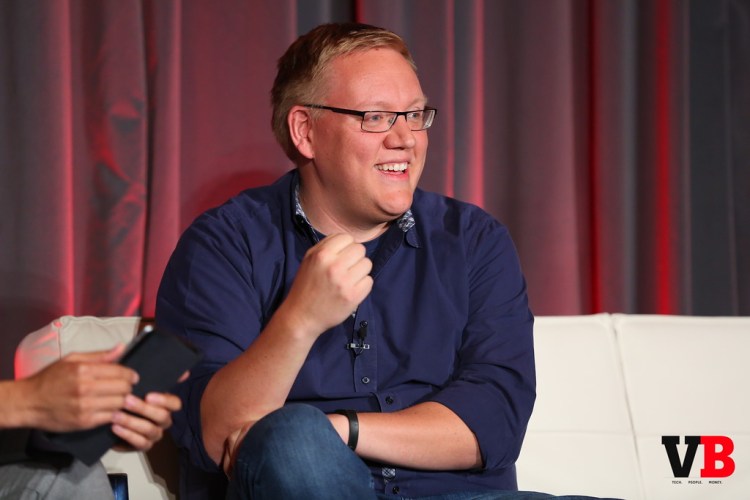Click here for all of our GamesBeat Summit coverage.
SAUSALITO, Calif. — Adam Boyes is a refreshingly honest kind of vice president.
Amid the unspoken formalities of the GamesBeat Summit’s second stage yesterday, Boyes offered a plain-spoken account of Sony’s rise from the mistakes made in the last console generation. On a slightly unrelated note, the vice president of publisher and developer relations at PlayStation was turned into an animated, Canadian bear for the company’s “PlayStation Heroes” commercial campaign. It was something he seemed very proud of.
“With [the] PlayStation 3, we became a bit full of ourselves.” Boyes said, referencing a demeanor he later returned to by commenting, “Before we were very stoic. ‘This is our platform, you are lucky to be on it. We are going to make you successful.’”
The PlayStation 3, while boasting powerful internal specifications, was difficult to design for. When crafting the PS3’s successor, Sony took a more customer- and developer-faced approach. Lead system architect Mark Cerny and president of Sony’s Worldwide Studios Shuhei Yoshida were cited by Boyes as key people leading the positive transition.
“We looked at what had happened in the PS3 era — we sort of wanted to make it more about the gamers, more about the developers,” Boyes said.
Turns out that a good way to bridge a gap between platform holders and designers is to just sit down and listen. Or, in the case of social media, a lot of scrolling.
“The first thing we did was go to Twitter,” said Boyes. “[Asking ourselves] ‘What does everybody hate’?”
Boyes and Sony also sat down and spoke to independent developers in person. The effort was the first time Sony as a company directly approached indie designers, and the complaints they heard (Boyes characterized the avalanche as “verbal diarrhea”) translated into what became some chief fixes for the PlayStation 4 from the previous console. A good thing, as Boyes commented that submitting a game to PlayStation in the past was “harder than taking the SAT.”
One of the biggest stop-gaps between independent developers in the past had been an internal team at Sony responsible for evaluating design concepts submitted to the company. Its reports were lengthy, mandatory, and near-universally hated by developers. Around his first day at Sony, Boyes suggested a re-evaluation of the team. That eventually spawned what is now the Developer Relations team and their — now entirely optional — suggestions.
Sony also wanted to adjust its monolithic appearance toward its fans as well. Boyes noted that while employees had a lot of fun with each other, they tended to have trouble “breaking out” of the business mindset with fans. The solution came after Boyes visited a conference, thinking an exclusively Sony-oriented event would help with approachability. PlayStation Experience was designed and executed in the five months between then and its December show date and proved a massive success.
“Whether it’s with Project Morpheus, or with PlayStation Now, we are always trying to evolve and try new things,” said Boyes, before returning to the point a few minutes later. “Our goal as a platform should be to provide the biggest and broadest breadth of content.”
At least a portion of the overwhelming success of the PlayStation 4 is due to Sony’s warming up to independent designers and customers. For Boyes’s own part, now that the system is out, it’s about continuing to engage on a human level. He claims to randomly agree with people saying things about him on forums like NeoGAF, and he even crowdsourced part of his convention speech with fans. That is about the only way a word like “shenanigans” could make it onto the stage at the Electronic Entertainment Expo.
“You have to realize,” Boyes said, wrapping up, “that this industry is super fun.”
That’s easy for Boyes to say. He got to turn into a cartoon bear.
VentureBeat's mission is to be a digital town square for technical decision-makers to gain knowledge about transformative enterprise technology and transact. Learn More

